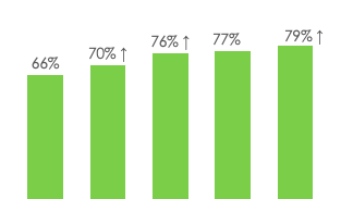Critics are writing off Best Buy in particular and big-box specialty retail in general as showrooms for Amazon and other online-only retailers.
But two recent developments suggest that converting its real estate into actual showrooms for manufacturers could be the salvation for that channel.
According to a report in the St. Paul Pioneer Press, Best Buy’s chief marketing officer Barry Judge recently told an advertising audience that the chain has “always been a showroom,” and earns more profit from manufacturers for displaying their products than it does from selling their merchandise to consumers.
Speaking at the Minneapolis College of Art and Design on April 2, a week before Brian Dunn resigned as CEO, Judge said Best Buy needs to be “the best showroom we can,” and should welcome, rather than shun, shopping app-wielding customers.
He went on to describe a scenario in which in-store shoppers can compare prices via a Best Buy mobile app, and the company receives a commission if the sale goes outside the store.
“As long as we get a little piece of that, that works out,” he said. “That is the way we need to think.”
He also urged his company to “embrace transparency” on its e-commerce site by providing competitors’ prices, adding product reviews from Amazon.com, and posting commentary from top CE bloggers.
“That’s how we become trusted,” he told the crowd.
It’s not clear whether his vision is a personal one, or reflected the thinking of Best Buy’s senior management team and directors. But his comments do come as the company looks to forge “a blueprint for growth,” interim CEO Mike Mikan wrote earlier this month in an open letter to employees.
The long-term plan could conceivably borrow from the Asian CE retail model. There, stores serve almost exclusively as showroom space for manufacturers, which rent branded display areas. Best Buy is well acquainted with the concept through its majority interest in China’s Five Star CE and majap chain.
The second recent development comes from Sears Holdings, which has also taken more than a few lumps from the analyst community, particularly after posting a $2.4 billion fourth-quarter loss. The company announced that it is expanding its chain of “Scrubology” in-store work apparel shops, operated by specialty apparel retailer Work ‘N Gear, from 39 to 91 Sears and Kmart locations in major markets including Chicago, Los Angeles, New York, Philadelphia and San Francisco.
“Sears Holdings is pleased thus far with the performance of the Scrubology concept,” Dave Schuvie, Sears’ licensed businesses VP said. “This venture with Work ‘N Gear and the development of this unique ‘store-within-a-store’ concept has allowed us to provide additional value to our customers.”
Do I spy a trend?













